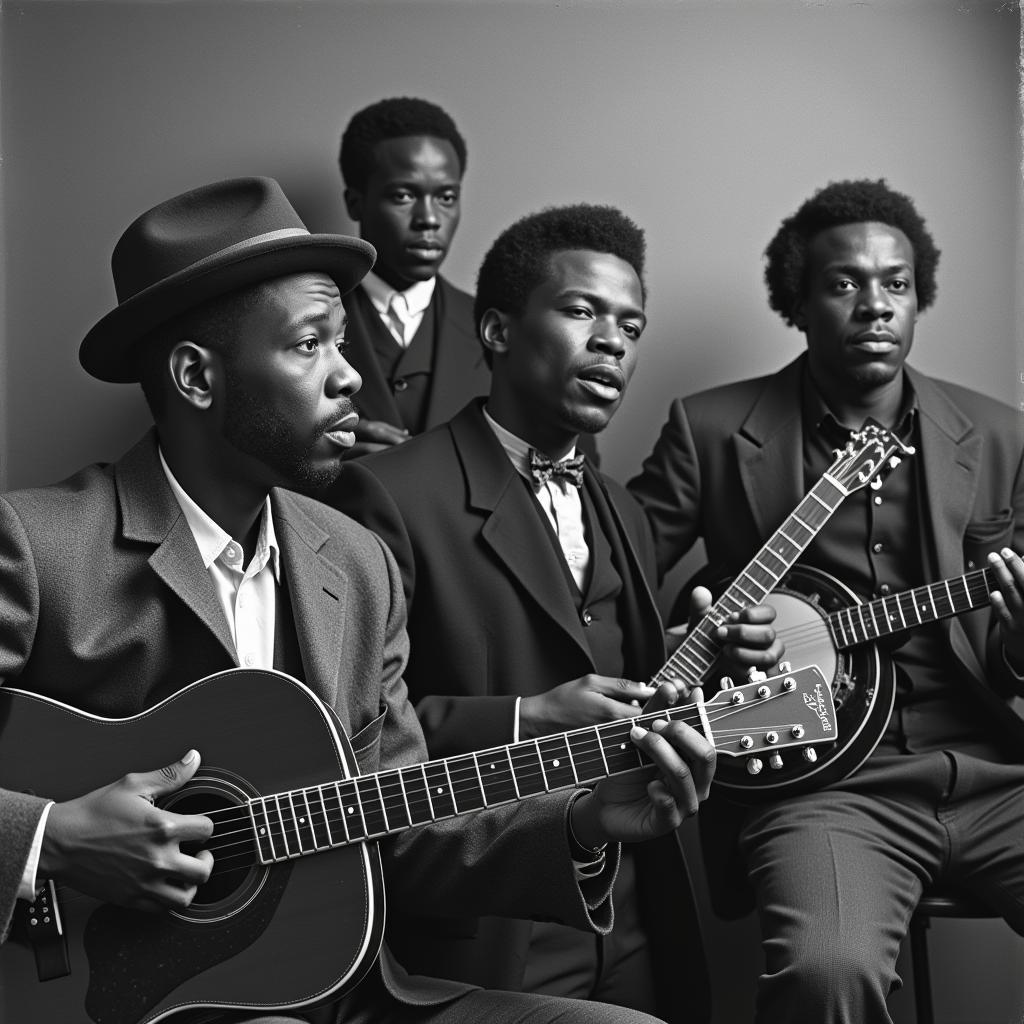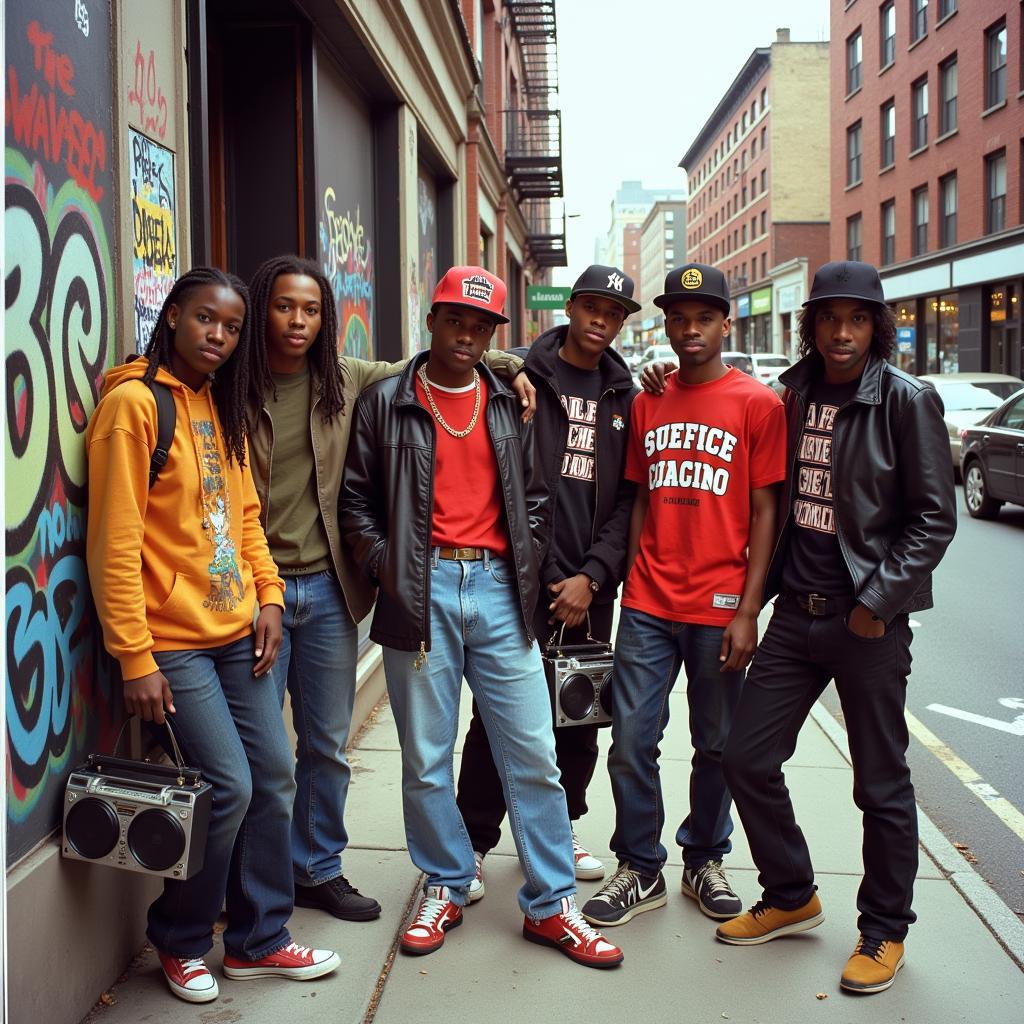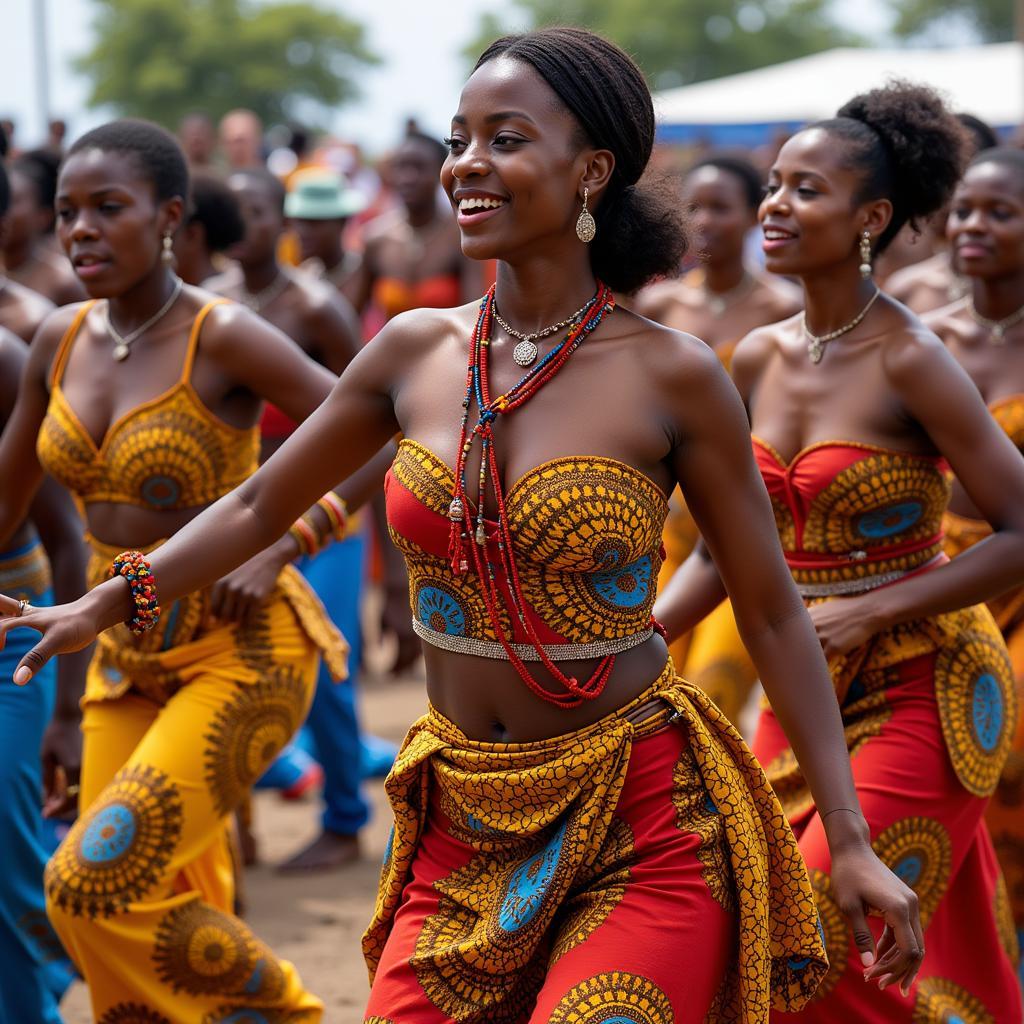The Enduring Power of African American Music Culture
African American Music Culture represents a vibrant tapestry woven from the threads of history, resilience, and creative expression. From the mournful strains of spirituals born out of slavery to the revolutionary rhythms of jazz, blues, and hip hop, African American music has consistently reflected the African American experience, while simultaneously influencing the broader cultural landscape of the United States and beyond.
Roots in Resistance: Spirituals and the Blues
The origins of African American music can be traced back to the brutal era of slavery. Denied their cultural practices and languages, enslaved Africans found solace and strength in spirituals. These religious songs, often imbued with coded messages of hope and resistance, provided a source of comfort and unity amidst unimaginable hardship.
As African Americans transitioned from slavery to sharecropping and life in the Jim Crow South, the blues emerged as a raw and poignant expression of their struggles. Characterized by its melancholy melodies, improvisational nature, and lyrics that spoke of love, loss, and social injustice, the blues became a powerful vehicle for storytelling and emotional release. Legends like Robert Johnson, Bessie Smith, and Muddy Waters gave voice to the joys and sorrows of a community yearning for equality and recognition.
 Early African American Blues Musicians
Early African American Blues Musicians
The Sound of Innovation: Jazz and the Harlem Renaissance
The turn of the 20th century witnessed the rise of jazz, a revolutionary genre that would forever alter the course of American music. Originating in the African American communities of New Orleans, jazz was a melting pot of musical influences, blending ragtime, blues, and European classical traditions. Characterized by improvisation, syncopation, and a call-and-response pattern rooted in African musical traditions, jazz pulsated with an infectious energy that captivated audiences worldwide.
The Harlem Renaissance, a cultural awakening that flourished in the 1920s, saw jazz take center stage. In iconic venues like the Cotton Club and the Savoy Ballroom, legendary artists like Louis Armstrong, Duke Ellington, and Ella Fitzgerald pushed the boundaries of musical innovation, cementing jazz as a symbol of Black excellence and creativity.
A Message of Empowerment: Soul, Funk, and R&B
As the Civil Rights Movement gained momentum in the mid-20th century, so too did the evolution of African American music. Soul music, with its impassioned vocals, gospel influences, and lyrics that spoke of love, hope, and social change, emerged as a soundtrack for the movement. Icons like Aretha Franklin, Otis Redding, and Marvin Gaye used their voices to amplify the calls for equality and justice.
Funk, with its infectious grooves, syncopated rhythms, and emphasis on dance, injected a sense of joy and liberation into the musical landscape. James Brown, Parliament-Funkadelic, and Sly and the Family Stone ignited dance floors with their electrifying performances and socially conscious lyrics.
R&B, building upon the foundations of soul and funk, continued to explore themes of love, relationships, and social commentary. Artists like Stevie Wonder, Michael Jackson, and Prince pushed creative boundaries, fusing diverse musical elements and captivating audiences with their showmanship and musical virtuosity.
Speaking Truth to Power: Hip Hop and Beyond
Born in the marginalized communities of the Bronx in the 1970s, hip hop emerged as a raw and unapologetic voice for a generation grappling with poverty, discrimination, and social inequality. From the rhythmic spoken word poetry of Gil Scott-Heron to the groundbreaking DJing of Kool Herc, the early pioneers of hip hop laid the foundation for a cultural phenomenon that would spread across the globe.
 Early Hip Hop Pioneers in New York City
Early Hip Hop Pioneers in New York City
With the rise of groups like Grandmaster Flash and the Furious Five, Run-DMC, and Public Enemy, hip hop became a powerful tool for social commentary, addressing issues of race, class, and police brutality with unflinching honesty. The genre’s impact extended beyond music, influencing fashion, dance, and language.
Today, African American music culture continues to evolve, with contemporary artists like Beyoncé, Kendrick Lamar, and Lizzo drawing upon its rich legacy while forging new paths of creative expression. From its roots in resistance to its messages of empowerment, African American music remains a vital force, shaping the cultural landscape and inspiring generations to use their voices to challenge injustice and celebrate the power of their heritage.

